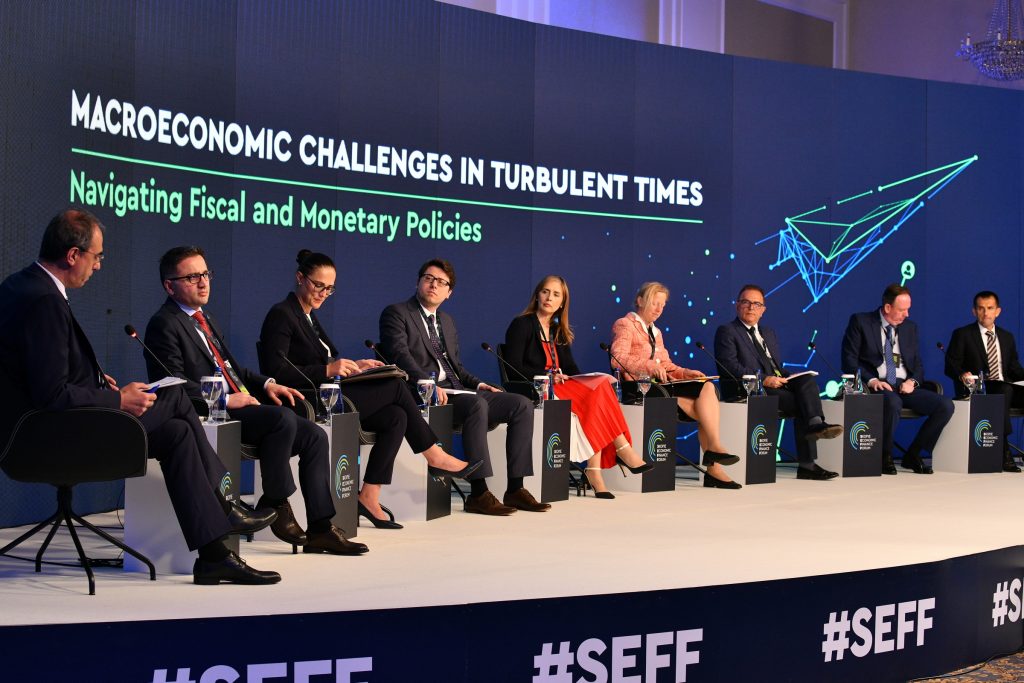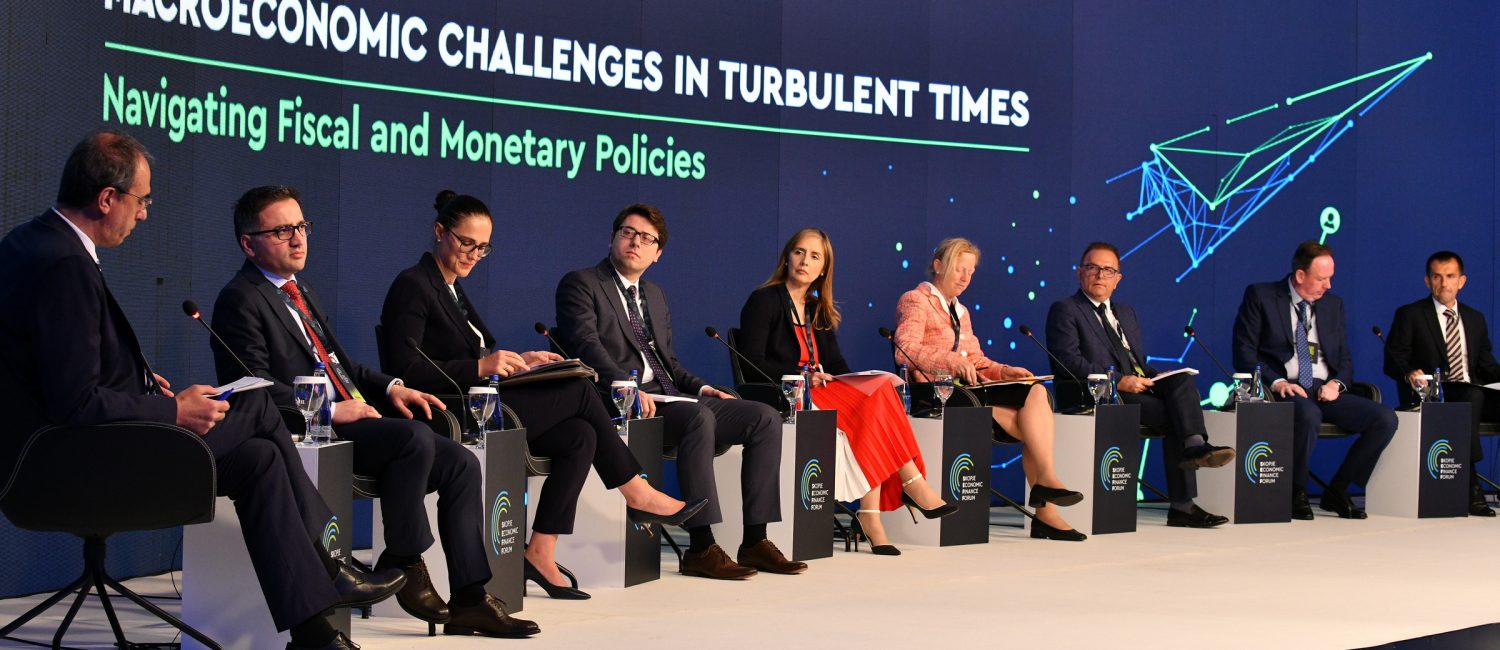30th May 2022, Skopje – In the short term – targeted measures as support to vulnerable categories of citizens and companies directly affected by the crisis, as well as for the purpose of preserving the stability. In the medium and long term – boosted competitiveness and growth by focusing on structural reforms: green transition, energy efficiency, digitalization, human capital investments and connectivity with the countries in the region. The message from the first Panel at Skopje Economic and Finance Forum – #SEFF 2022, pertains to the way of responding to the macroeconomic challenges in turbulent times, all to the end of sustaining economic growth.

This Panel was attended by Minister of Finance, Fatmir Besimi, Minister of Finances and Economy, Delina Ibrahimaj, Minister of Finance, Labor and Transfers of Kosovo, Hekuran Murati, Minister of Fiannce, Aleksandar Damjanovic, Governor of the National Bank, Anita Angelovska – Bezhoska, IMF Alternative Executive Director, Luc Dresse, IMF Resident Representative to the Regional Office for the Western Balkans, Stephanie Eble, Senior Research Associate at the Vienna Institute for International Economic Studies, Vladimir Gligorov, President of the Council for Education and Strategic Research within the Economic Chamber of North Macedonia, Gligor Bishev and the University Professor, Aleksandar Stojkov. Moderators at the Panel were Zoran Jovanovski – Professor of Economics and Vladimir Simic – Professor of Economics at the Faculty of Economics, Business and Tourism in Split.
As it was pointed out, over the past two years, the world and the economy have been facing new shocks and challenges over the past two years – first the pandemic, which led to the deepest recession since World War II, followed by the disruption of supply chains causing price surge of commodifies in particular energy products, as well as tightening of the conditions on the financial markets. War in Ukraine acted as a catalyst in the rise of prices of commodities, thus causing additional supply chain disruptions and increased caution among investors and consumers. Threats from the pandemic are still present, with the global economy facing multiple crises at once.
What was also pointed out at this Panel was that the COVID-19 induced crisis demonstrated that the economic and the financial systems have become more resilient from the global financial crisis onwards. Policy makers also managed to respond promptly thereto. The authorities in many of the economies managed, with the massive fiscal stimulus, managed to cushion the impact of the COVID-19 crisis on the economic activity.
On the other hand, as a result of the crisis, fiscal space has decreased, while public debt and fiscal deficit have increased. This imposes the need for more target fiscal responses to the new ongoing crisis.
As noted, monetary policy now plays a completely different role than in the previous crisis. While the accommodative monetary policy during the pandemic provided for necessary additional liquidity aimed at maintaining the economic activity and preserving the jobs, at present, it is being tightened by the monetary authorities, all to the end of lowering the inflation expectations.
The importance of coordinating fiscal and monetary policy in order to preserve the stability, was also highlighted during the discussion.
It was concluded that in order to maintain the growth prospects, structural reforms should be pursued even in times of crisis, since it is the only way of boosting the competitiveness and the productivity, as well as attaining accelerated and sustainable economic growth in the long term.
















